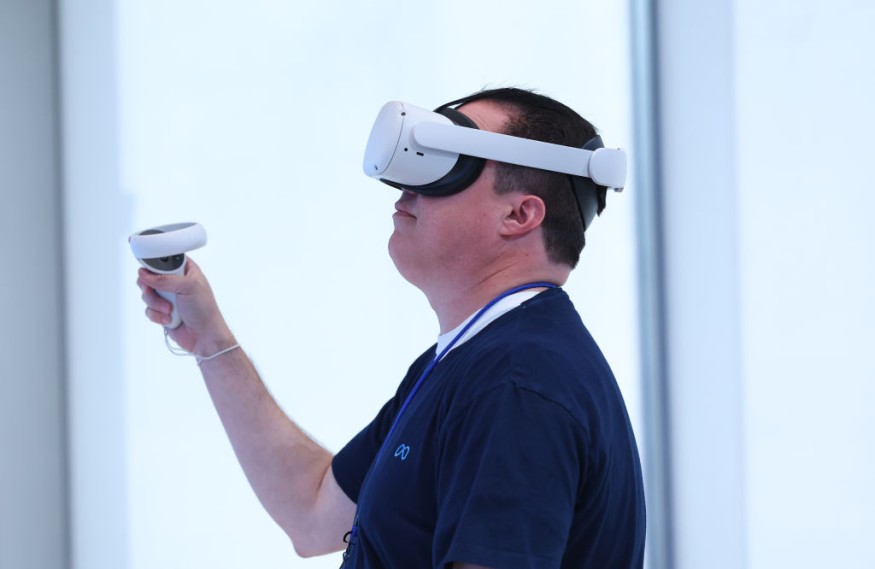The idea of tying the user's real life to their virtual avatar has always fascinated Oculus co-founder and defense contractor Palmer Luckey. He recently shared that he has designed a new virtual reality headset that could "instant destroy the brain of the user," killing them if their virtual avatar dies in the game.
Luckey wrote in his personal blog that the new VR headset is embedded with explosive charges above the forehead that releases lethal explosion triggered by "a narrow-band photosensor that can detect when the screen flashes red at a specific frequency." He said that pumped-up graphics might look the game real but a threat with serious consequences can only make it feel real.

How Sword Art Online Inspired Oculus Creator
The design of Luckey's headset is as brutal as it is simplistic, VR Scout reports. It is attached with three explosive charge modules from a different project Luckey was working on and then mounted on the Meta Quest Pro headset.
He explained that the Sword Art Online incident inspired him to come up with the VR headset's design in which thousands of gamers found themselves trapped with the VRMMORPG (massively-multiplayer online role-playing game). Players can access the virtual world using the NerveGear, which contained a microwave emitter that could be overdriven to lethal levels.
He noted in his blog that they are now halfway to making the NerveGear a reality, but they have only figured out the half that kills the user. That means the perfect VR half of it is still many years to come.
The NerveGear in Sword Art Online also features an anti-tamper mechanism that automatically kills the user if they attempt to remove or destroy the headset. Luckey said that he is working on a way to address this issue.
For now, Luckey said that the VR headset is just a piece of office art that serves as a reminder of unexplored avenues in game design. More importantly, it is the first non-fiction example of a VR device that can kill the user, although it will not be the last.
READ ALSO: Are Police Needed in Virtual Reality? Crime, Sexual Exploitation Still a Concern in Metaverse
Previous Video Games With Real Consequences
Luckey wrote in his blog that the threat of serious consequences can make the game feel real to the player, likening it to real-world sports that revolve around similar stakes though injuries in these games fall short of instant death.
Although Luckey said it is an unexplored area of video games, ARS Technica reports that it is not entirely true. In 2001, PainStation art installation warned players that they would experience heat, punches, and electroshocks if they lose a game of Pong. Also, that same year, the "Tekken Torture Tournament" had 32 participants wear a brace that emits non-lethal electrical shocks when their avatars on screen are injured.
Moreover, the Food and Drug Administration approved a virtual reality pain management system that uses behavioral therapy principles in addressing the physiological symptoms of pain and helps relieve pain through a skills-based treatment program.
Luckey cites that there could be a variety of failures that could occur and kill the user at the wrong time and even if he has not used the deadly new headset yet. Still, he harbors a deep interest in virtual reality after more than five years after being fired by Oculus's parent company Facebook.
RELATED ARTICLE: Over 100 Medical Professionals Perform 27-Hours VR Surgery on Conjoined Twins
Check out more news and information on Virtual Reality in Science Times.












